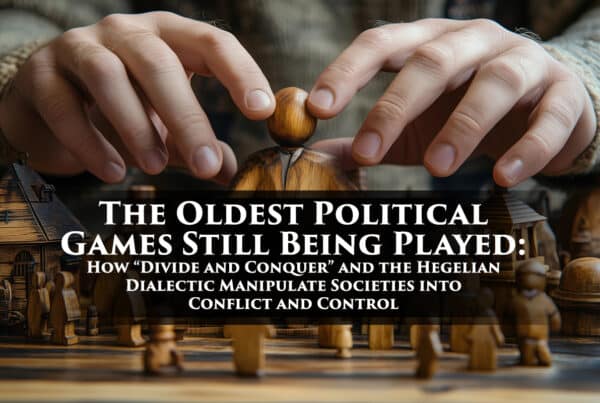Canada’s proposed Bill C-2, known as the Strong Borders Act, is being introduced as a means to bolster border security, reform immigration policy, and crack down on organized crime. On its surface, the bill appeals to public safety and national sovereignty — but as with any sweeping legislation, the fine print deserves careful attention.
While parts of the bill are pragmatic and grounded in real security concerns, there are also significant implications for civil liberties, privacy, and Canada’s long-standing human rights obligations.
Let’s break it down — what’s in the bill, what it means for Canadians, and where the red flags are.
Overview of Bill C-2
Bill C-2 proposes to modernize Canada’s immigration and border enforcement systems through a series of legal and policy updates. It aims to tackle:
- Cross-border organized crime
- Human trafficking
- Drug smuggling
- Backlogged immigration procedures
- Gaps in enforcement capacity
Key provisions include:
- New enforcement powers for the Canada Border Services Agency (CBSA) and Canadian Coast Guard.
- Expanded criteria for ineligibility to claim refugee status.
- Increased inter-agency information sharing, including potential warrantless access to digital subscriber info.
- Greater discretionary authority for federal immigration officials to cancel or modify immigration documents in the “public interest.”
Read the full text of the bill here: https://www.parl.ca/DocumentViewer/en/45-1/bill/C-2/first-reading
Areas of Concern — In Detail
1. Impact on Asylum Seekers and Refugee Rights
One of the most criticized aspects of Bill C-2 is the proposal to bar refugee claims from people who have been in Canada for more than one year — and to apply this rule retroactively to anyone who arrived after June 24, 2020.
This means:
- Individuals who may have been living in Canada for years — working, contributing, and building lives — could suddenly be deemed ineligible for protection.
- Even those with valid fears of persecution may be denied a hearing based solely on timing.
Why this matters:
- Canada is a signatory to the 1951 Refugee Convention, which affirms the right to seek asylum regardless of timing.
- This change could be interpreted as violating international human rights standards.
- It sets a troubling precedent for retroactive lawmaking, which undermines legal certainty and fairness.
2. Privacy and Surveillance Concerns
Bill C-2 includes provisions to expand information sharing between Immigration, Refugees and Citizenship Canada (IRCC), CBSA, the RCMP, and other federal agencies.
Notably:
- The bill could allow law enforcement to access internet subscriber data without a warrant, under certain circumstances.
- This “lawful access” provision was previously rejected in other surveillance bills due to privacy concerns.
Why this matters:
- Accessing digital information without judicial oversight weakens Charter protections around unreasonable search and seizure.
- Once normalized, these powers tend to expand, not contract — opening the door to broader digital surveillance and potential abuses.
- Critics argue it amounts to backdoor surveillance legislation, hidden within a security bill that most people won’t read.
3. Broad Discretionary Powers for Government Officials
Bill C-2 allows the federal government to suspend, cancel, or modify immigration documents “in the public interest.”
What’s unclear:
- What qualifies as the “public interest”?
- Who defines it?
- What oversight exists?
Why this matters:
- Vague language = vague enforcement.
- Discretionary power without clear accountability is ripe for abuse — especially in politically charged environments.
- The risk is that decisions could be made based on political optics or public pressure, rather than due process.
4. Heavy Compliance Burden on Platforms and Institutions
The bill also empowers the CBSA and related agencies to:
- Conduct unannounced inspections of facilities handling exports.
- Demand records from carriers, freight forwarders, or telecommunications firms.
Why this matters:
- While aimed at curbing smuggling and organized crime, the mechanisms are aggressive and loosely defined.
- Smaller businesses and third-party operators may lack the capacity to respond to complex or vague demands.
- This could lead to unfair penalties, industry friction, and additional costs passed down to consumers.
What This Means for Canadians
- Civil Liberties at Risk: Bill C-2 introduces multiple powers that erode privacy, due process, and refugee protections. Citizens should be alarmed by the slow normalization of state surveillance and unchecked executive power.
- Canada’s International Reputation: We’ve long been seen as a nation of refuge. This bill undermines that by setting legal obstacles that many see as hostile to vulnerable people seeking safety.
- Risk of Mission Creep: Bills that start with “organized crime” as the target often expand over time. Tools meant for high-risk threats can easily be redirected toward low-risk, politically inconvenient populations.
What the Bill Gets Right
There are aspects of the bill that make sense:
- Cross-border smuggling and human trafficking are real problems.
- CBSA does need more modern tools to track and stop illegal shipments.
- Coordination across federal agencies is essential in the 21st century.
But these benefits should not come at the expense of the core values that define our democracy.
Public Safety vs. Overreach
There’s no question that Canada has a right — and a responsibility — to protect its borders and ensure public safety. But that mission must be carried out with transparency, accountability, and respect for fundamental rights.
Bill C-2, in its current form, grants too much discretion to authorities, reintroduces troubling surveillance measures, and risks punishing the very people our system should be protecting.
We need laws that are clear, fair, and constitutional. Canadians deserve security — but not at the cost of our values.






